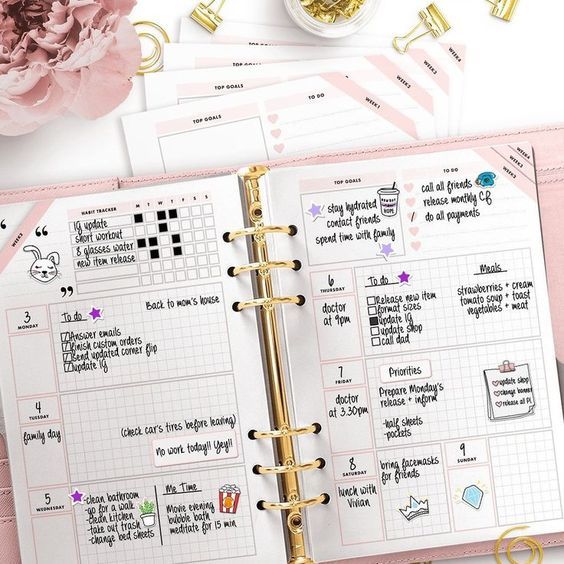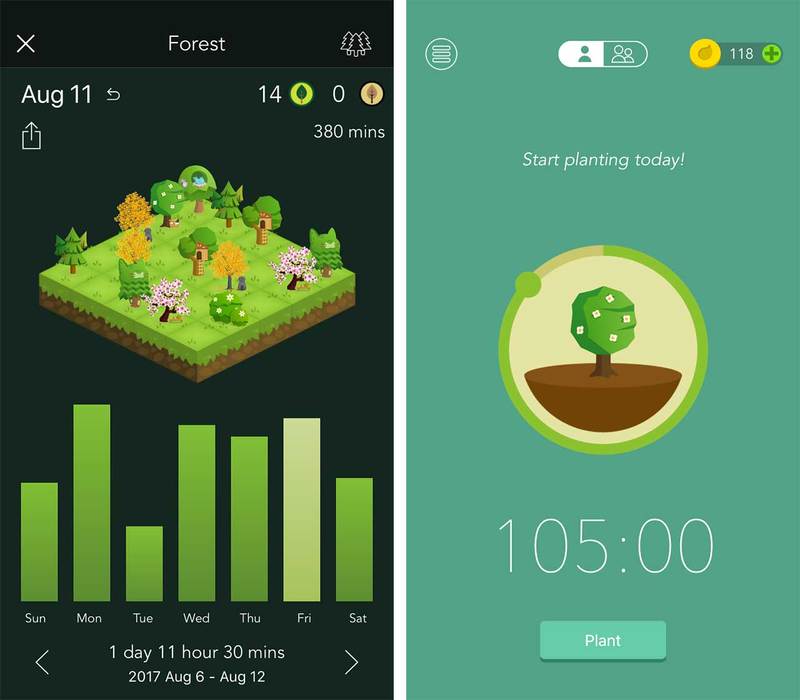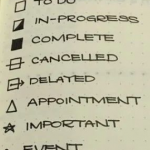I discovered that avoidance often goes hand in hand with anxiety; if it’s constant, only in particular situations, or anything in between. Avoidance is most often referred to as procrastination, but I like to use “procrastination” just when talking about school, but that’s my own preference. To me, avoidance is more than postponing a project or delaying chores. It’s that constant nagging thought of wanting to get away from something and distract yourself. You often feel like you’re out of control, whether you’re productive or not. For example, when you really want to complete your online course, but you find something that makes you so much happier and keeps you from getting bored, even though you know it’s not true. Or it’s the tempting alternative of finding happiness in a song when your tears want to roll down your cheeks so the sadness doesn’t build up inside an unhealthy amount. While it’s good to explain how terrible avoidance can be, my goal in this article is to help others who feel like avoidance is holding them back, regain some control.
1. Aromatherapy
The first tip I have is to use aromatherapy. Check the labels first before buying anything to make sure you won’t have an allergic reaction. I have found that by spraying and rolling different scents on my wrists or in the air, my brain is more focused on the task at hand. They can also be used to relax or fall asleep if you have trouble with that. When I took the AP test in May, the aromas I used were very helpful in preventing the inevitable stress from consuming my every thought. Instead of trying to pretend I didn’t have to take a test that day, I faced it head-on.
This practice has been around for thousands of years, so it has been wonderfully perfected. There are also many scientific studies proving how this method works and why. If you want to learn more about how aromatherapy (essential oil therapy) works, you can find it here.
2. Be productive
Sometimes I find that I can’t be productive with the task I should be doing, but I have the inspiration to do something else. While it’s always avoidance, being productive successfully with one thing leads to a chain reaction to doing other things. As long as you keep doing your main mission, how dangerous can it really be to complete something else?
When I’m in a “crisis”, I’m often inspired to clean/organize my room. By organizing and decorating, my bedroom feels like a more productive space that I can actually breathe in. Once I’m done organizing, I can easily move on to the other task I have left to do. At that point, I started to feel accomplished and my confidence grew.
What if the organization is what are you avoiding? Well, instead of getting organized like I do, you can do anything from painting to writing poetry to finishing easier homework or whatever you wanted to finish. Try to limit the number of tasks you complete to one or two, or limit the time to an hour and a half, so that you don’t justify your avoidance of the main project too much. Remember: the sooner you finish the main project, the sooner you can relax and move on.
3. Set a schedule
Crossing out different tasks and actually looking at what you need to do can be very satisfying and limit the number of avoidances you can do. Once you’ve seen what you have to do in a day or a week, it’s much harder to pretend it doesn’t exist. Writing your different tasks in different colors can also make you more excited to start your work. I own hundreds of pens and love writing down all the tasks I need to do, but even that can become more overwhelming than helpful. 
4.Apps
 The applications have proven to be very useful and compelling. They help you stay focused by giving small rewards for the time you put in, or sometimes they just help you plan exactly what you need to do and when you need to do it. Here is an article with recommendations of apps you can use: click here. There are also several apps to soothe you so stress doesn’t become overwhelming. There are apps for everyone, no matter what device you want them on, or whether you have an Android or an iPhone.
The applications have proven to be very useful and compelling. They help you stay focused by giving small rewards for the time you put in, or sometimes they just help you plan exactly what you need to do and when you need to do it. Here is an article with recommendations of apps you can use: click here. There are also several apps to soothe you so stress doesn’t become overwhelming. There are apps for everyone, no matter what device you want them on, or whether you have an Android or an iPhone.
I have personally used a planning app and a focus app. The planner let me know when it was due, which I found especially helpful since I’m not one to check my planner throughout the day. The focus app was called Forest. For Android users, Forest is free, but for iPhone users, it is not free. However, Flora has the same goal as Forest. In Forest and Flora, you choose apps that you know will distract you, and you allow the app to watch it temporarily to make sure you don’t open them. As you work, the app “grows” your chosen plant for a while so you can concentrate. If you open your apps before the plant has “grown”, it will “die” and you’ll have to start all over again if you want a plant to show for now that you haven’t been distracted by your phone. If you complete successfully and the timer goes off, your plant will be beautiful and fully grown. I found this method extremely rewarding; not only was I able to get things done, but I was also able to prove to myself in the future that I could use my time wisely.
5. Other useful tips
Although I’m not an expert on how to stop avoidance, I hope some of these tips help. However, it all depends on what works for you. If that doesn’t work, you can try meditation, yoga, or other mindfulness activities to help you focus and reduce stress so you can be productive. Sometimes just a quick dance session or being creative can help release the energy so you can focus on your task.
Good luck in your efforts to eliminate avoidance from your life!







